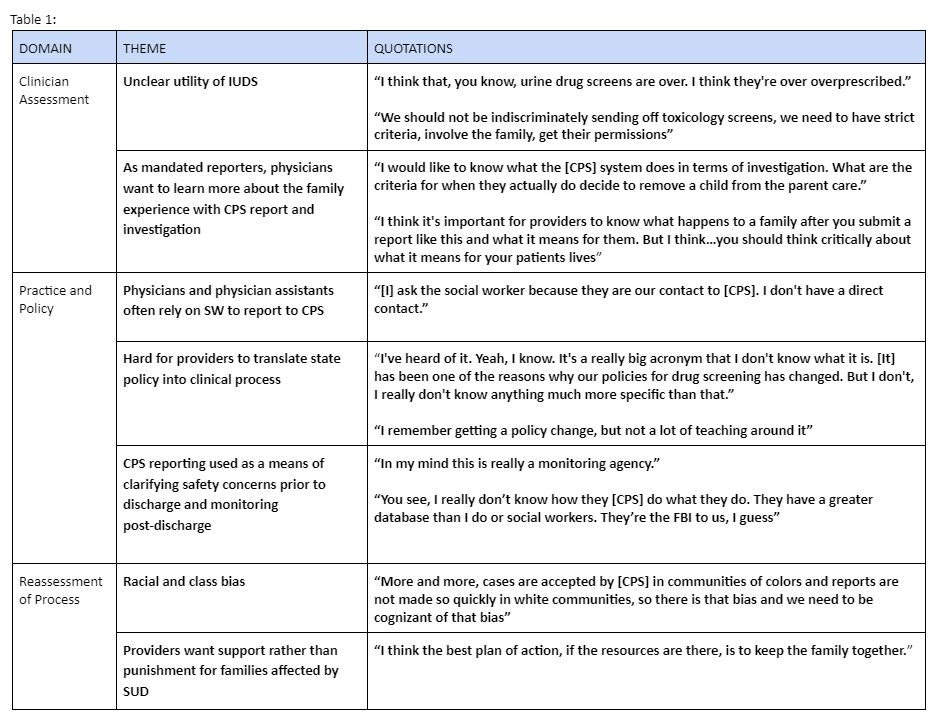Health Equity/Social Determinants of Health
Health Equity/Social Determinants of Health 8
570 - Provider Perceptions of Infant Urine Drug Test Policy in an Urban Mother-Baby Unit
Publication Number: 570.412

Isuree Katugampala, MD/MPH (she/her/hers)
PGY3
The Children's Hospital at Montefiore
bronx, New York, United States
Presenting Author(s)
Background:
Policies and practices instituted in response to substance use disorder (SUD) in pregnancy can be harmful to mothers and newborns, particularly for poor Black and Brown people. Health care providers' (HCP) understanding of their role as mandated reporters, including their knowledge of current practice and policy, is not well understood. Provider experience can be used to inform policy and practice development with the goal of improving both prenatal and newborn care by decreasing barriers and mitigating bias for pregnant people with a history of substance use.
Objective: To assess provider perceptions of state policies and mandated reporter roles as it pertains to urine drug testing in infants (IUDS) in the Newborn Nursery and NICU in an urban Mother-Baby Unit.
Design/Methods: An IRB approved, qualitative study was conducted using an implementation science framework in an academic hospital in The Bronx. 18 individual semi-structured interviews of HCPs (neonatology attendings, physician assistants, and fellows; newborn nursery attendings; pediatric residents) and one focus group with 3 social workers (SW), were conducted, until thematic saturation was achieved. Interviews were transcribed, independently analyzed by 2 investigators, categories and themes were generated, and discrepancies were resolved by consensus.
Results: Providers self-reported understanding of state policy regarding referrals to support programs versus child protective services (CPS) for a positive IUDS: 14 providers had minimal and 7 providers had some understanding of this policy. Provider responses were categorized into 3 domains, adapted from a framework to implement new practice guidelines in a clinical setting, (1) Clinician assessment of their current practice; (2)provider knowledge of institutional and state practice and policy and (3) provider interest in change or reassessment of process (Table 1). Providers reported they are not confident in the benefit of current practices, they have inconsistent practices, and only vague knowledge of policies. Providers desire practices and policies that avoid racial/class biases and support families, rather than fragment them.
Conclusion(s): Health care providers have limited understanding of state policy regarding IUDS and reporting measures, as evidenced by considerable variation in providers’ consenting and reporting practices. This gap in practice and knowledge interplays with racial and class bias, and may lead to unnecessary referrals to CPS for families with substance use concerns.
